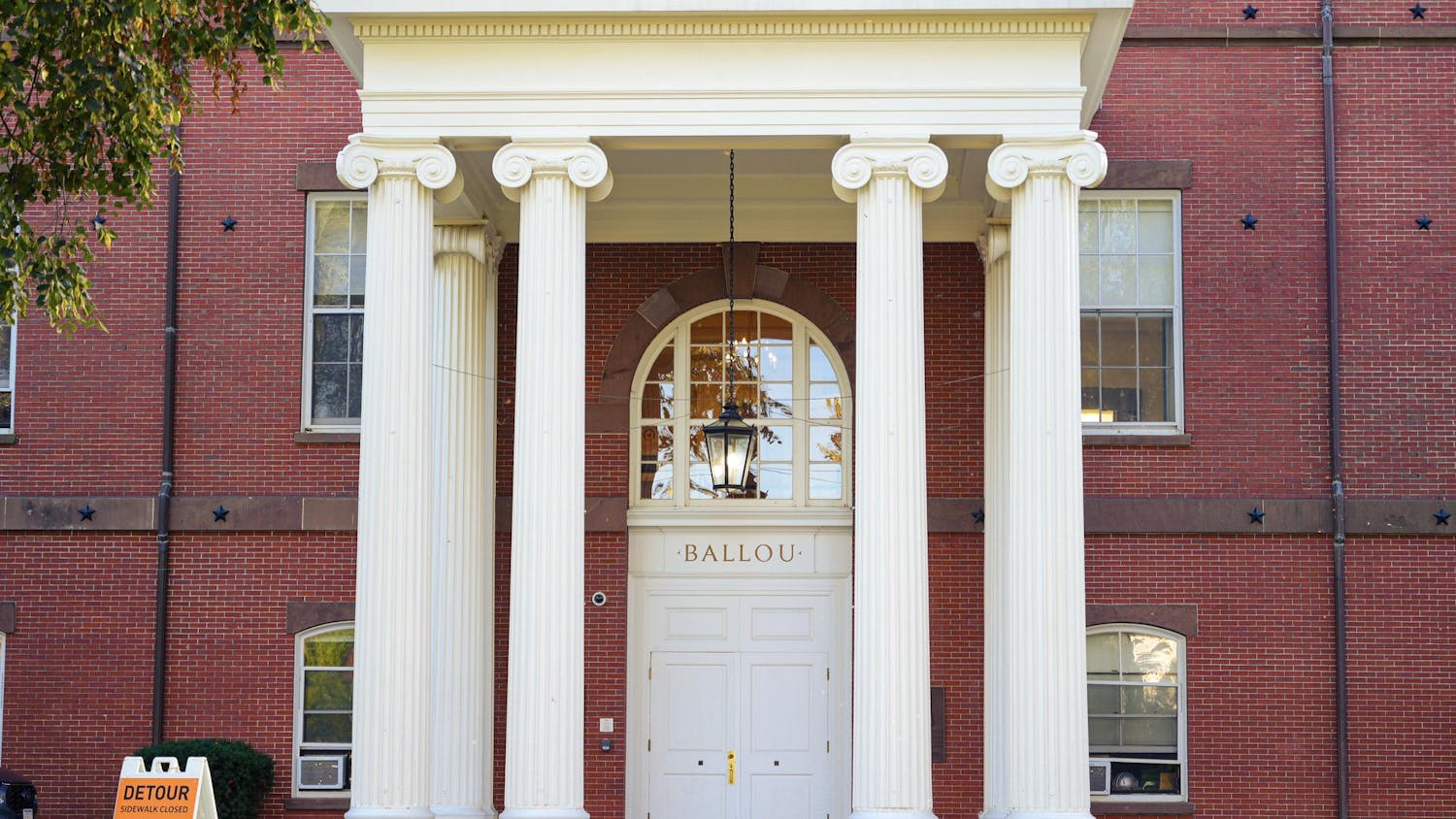Kevin Outterson, a professor of health law, ethics and human rights at Boston University, spoke at The Fletcher School’s annual Dr. Maurice S. Segal Lecture on Feb. 29. Outterson’s talk, titled “The Social Ecology of Antimicrobial Resistance,” focused on the science, economics and accessibility of antimicrobial medicines.
Outterson is also the founding executive director and principal investigator of Combating Antibiotic-Resistant Bacteria Biopharmaceutical Accelerator, or CARB-X, a global nonprofit partnership whose mission is to accelerate the development of antibiotics, vaccines and other products that fight against lethal bacteria that have grown resistant to the current circulation of antibacterial products.
This work fits under the umbrella of what is known as antimicrobial resistance, a global issue that is associated with 4.95 million deaths per year, of which low and middle-income countries bear most of the burden. However, more than half a million lives could be saved every year should countries effectively use vaccines and have the resources to continue to develop new vaccines.
Outterson discussed the prevalence of antimicrobial resistance in day-to-day life, despite being underrepresented in health conversations. The spread of antimicrobial resistance contributes to a substantial number of deaths and disabilities globally. It sets back advancements in modern medicine, and it also threatens the ability to treat common infections and impose cures that could be crucial to saving lives.
“You may know people who actually died from a bacterial infection, but nobody [talks about it],” Outterson said in an interview with the Daily. “A small number of the people who died from COVID actually had a bacterial co-infection, which is what killed them.”
Outterson believes that knowledge of antimicrobial resistance should be more widespread. By receiving more attention from more people, including those outside the healthcare domain, research and development toward an antimicrobial resistance solution could be expedited.
“I wish we had more communications or media people [considering the issue],” he said. “We need the Hollywood movie.”
While this issue hits hard for many countries around the world, it has also affected those closer to the Tufts community as well. Dr. Helen Boucher, dean of Tufts’ School of Medicine, who also spoke at the event, mentioned that the issue has had a significant impact on her work.
“I specialize in transplant-related infections,” Boucher said. “And sadly, we've come to a time where I've had the sad duty of having to tell a patient that I don't have any more antibiotics, there's nothing left that works. And I've had to send people home on hospice, because we can't treat their infection. So that makes the problem very real to me.”
Outterson and Boucher have worked together in order to tackle the growing issue of antimicrobial resistance by combining the scientific, economic and legal aspects. It is an interdisciplinary issue that affects not only healthcare, but also the fields of law, economics and veterinary medicine, which are all represented at Tufts. Boucher expressed the importance of ensuring the presence of a variety of different perspectives in order to create more efficient solutions.
“Antibiotic resistance is a multifaceted problem and it requires a multifaceted solution,” she said. “So it requires people working together from across different disciplines [and] Tufts is uniquely situated as an academic institution to address this problem.”
Boucher included that Outterson’s background in economics and law added a unique context for looking at healthcare concerns.
“He looked at the economics of this problem and the economics of how you solve it,” she said. “And together, he educated us quite significantly on how this all works.”
Outterson and Boucher believe that their collaboration and the blend of different fields of expertise, combined with their shared commitment to solving this issue, will truly make an impact towards eliminating antimicrobial resistance.
“Together we were able to advocate in better ways,” Boucher said. “I’ve gone to the Department of the Treasury with Professor Outterson, we’ve testified in Congress together, we’ve done all kinds of written white papers and work together, along with others … veterinarians and policymakers and politicians. … The people who take what a research study shows and make it work in a community … and so I think our partnership is just one of many that have made a difference in advancing this work.”






